Презентация WHY DID REVOLUTION HAPPEN
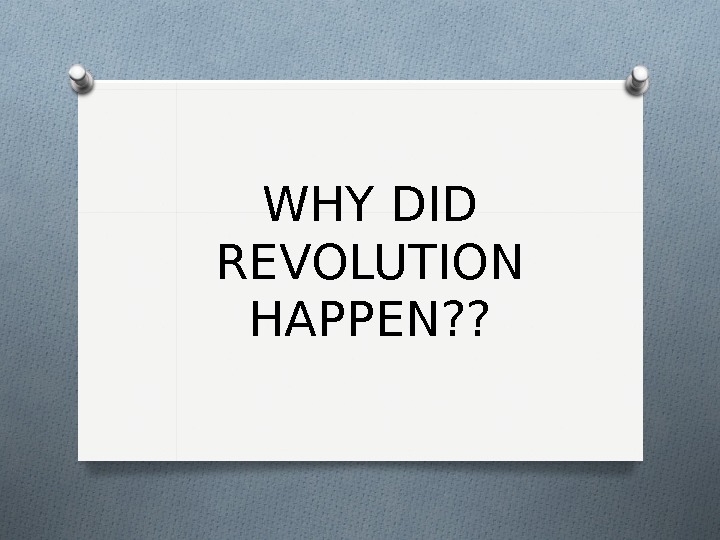
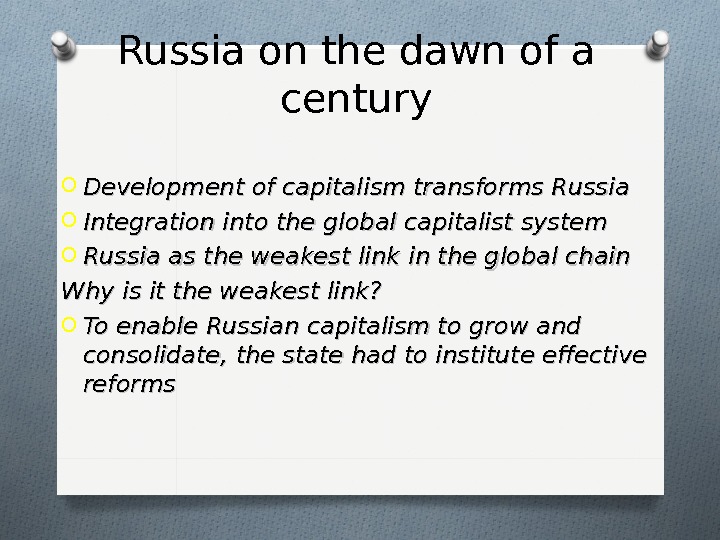
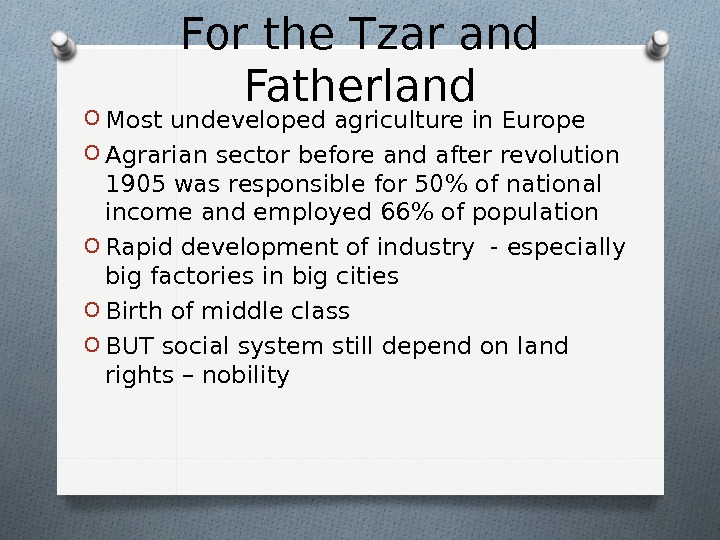
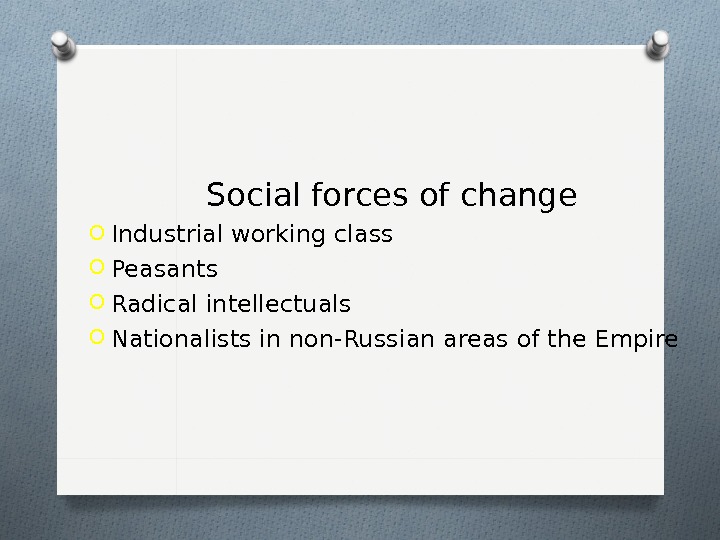
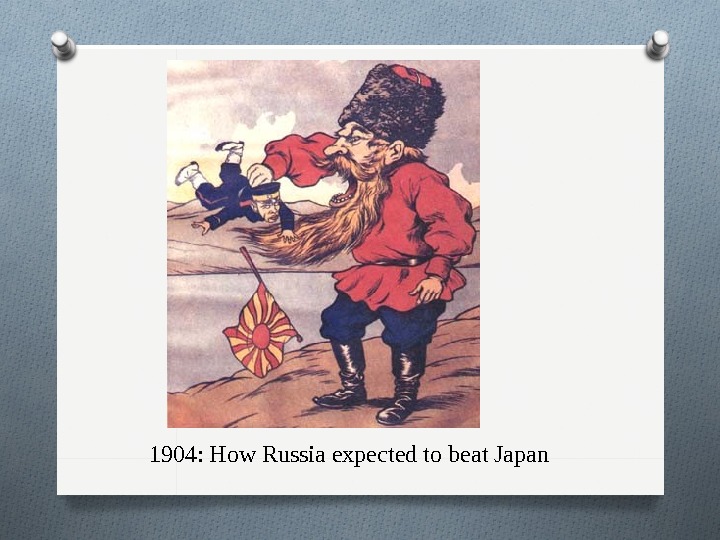
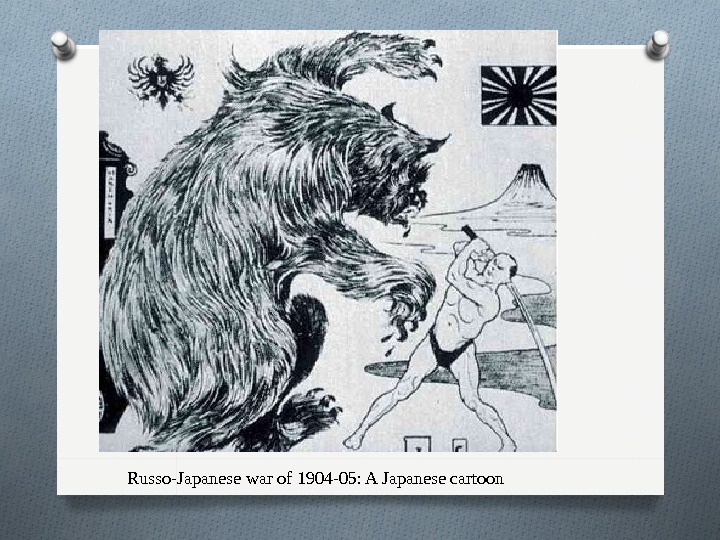
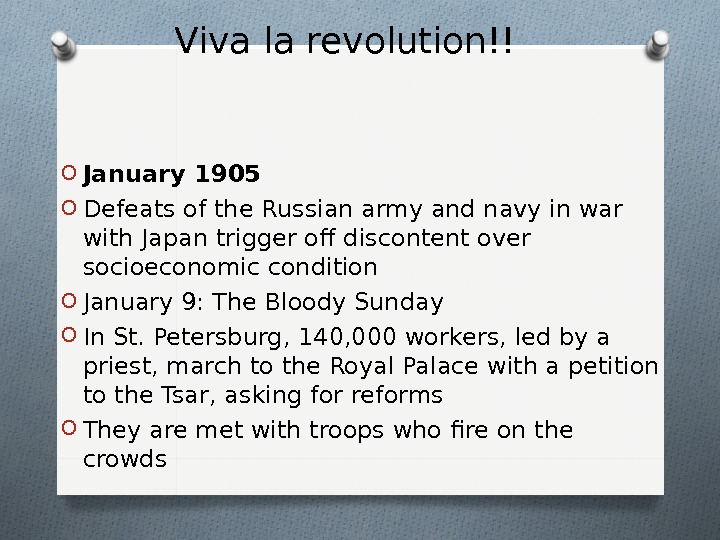
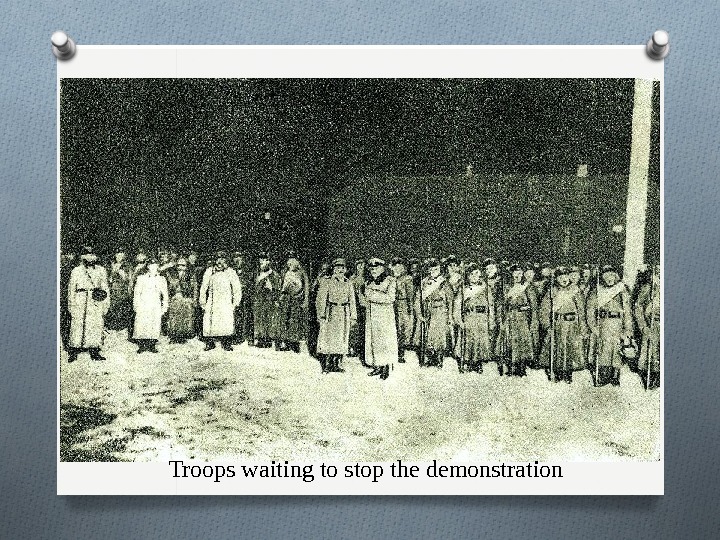
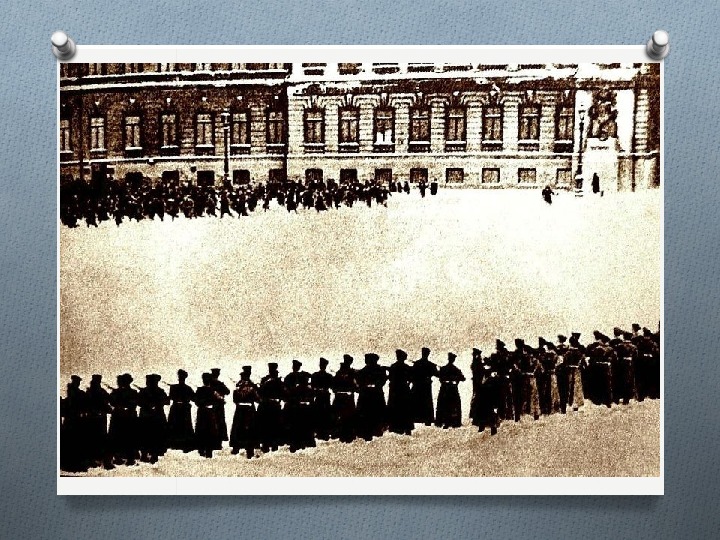
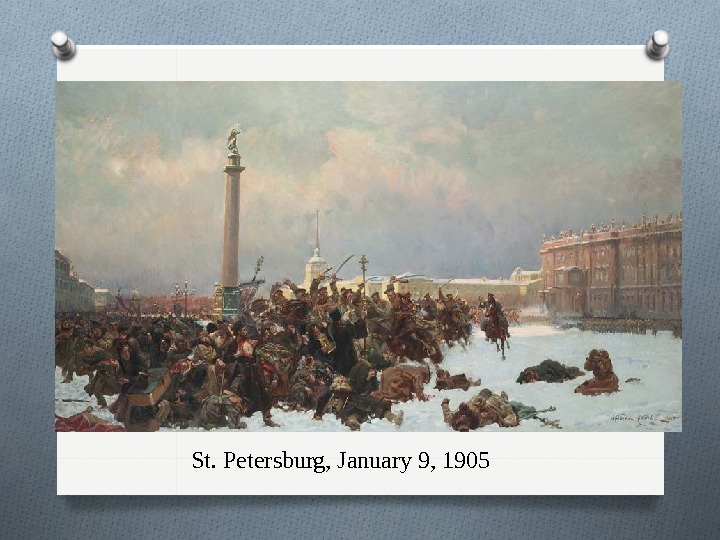
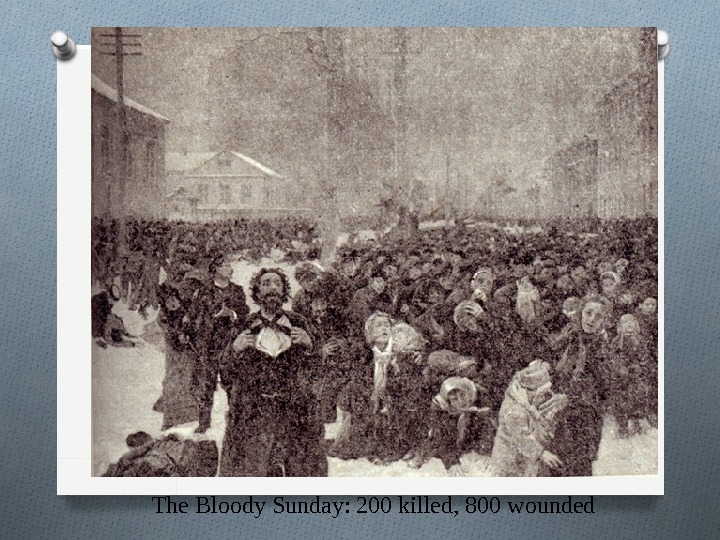
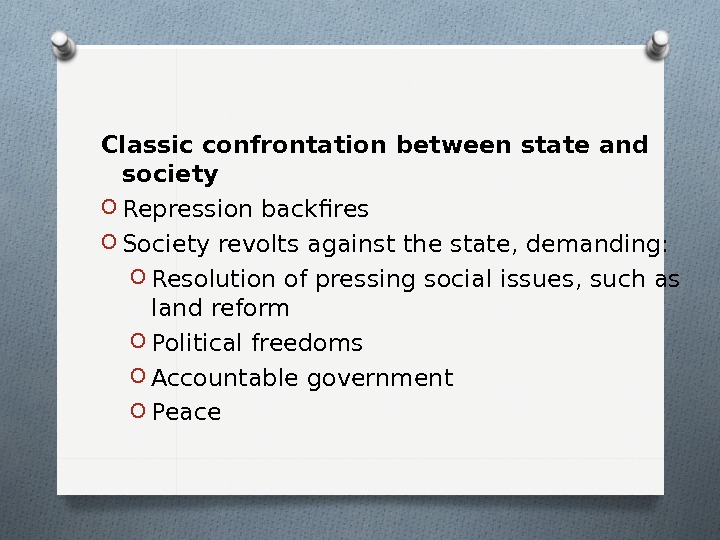
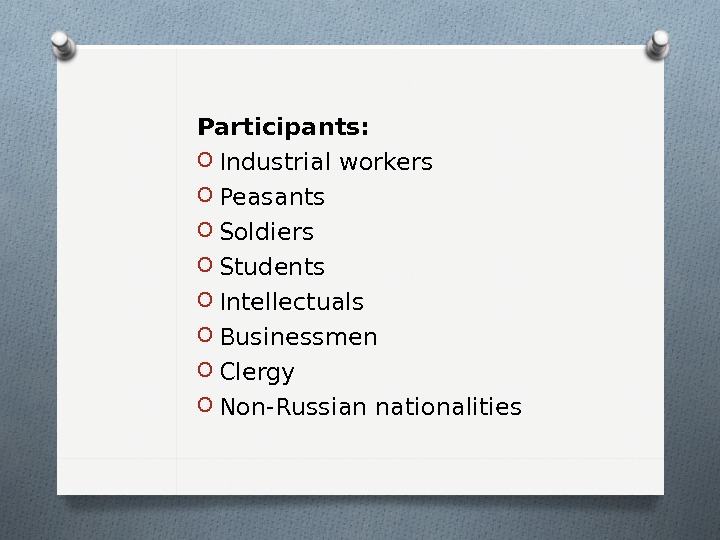
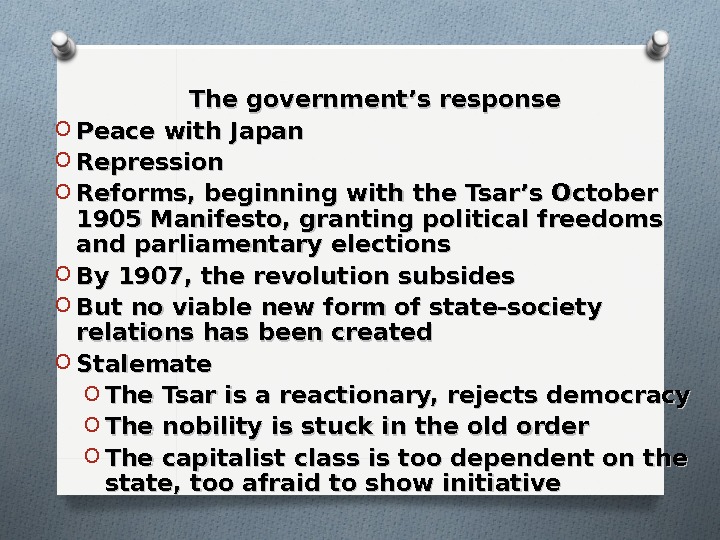
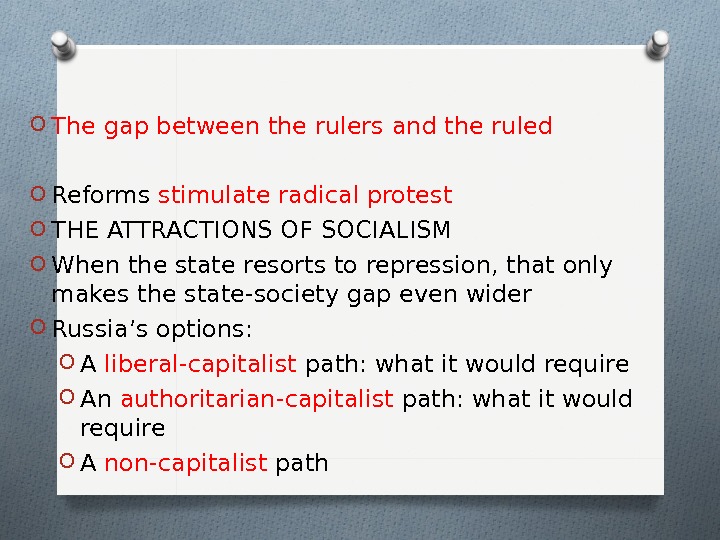
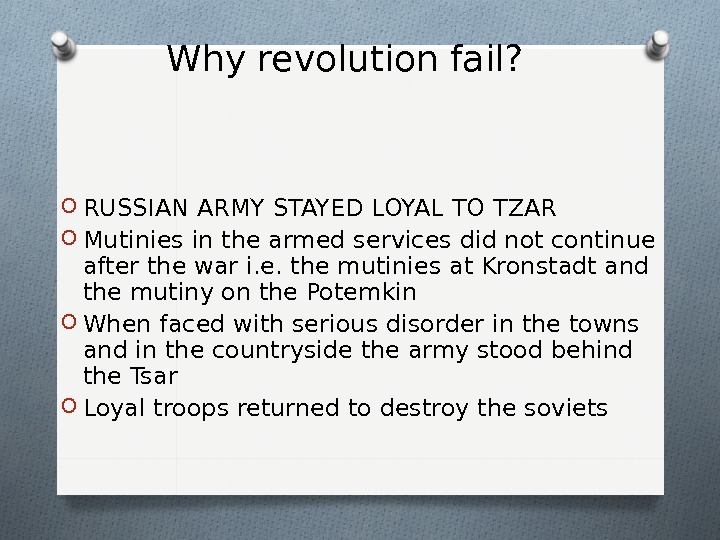
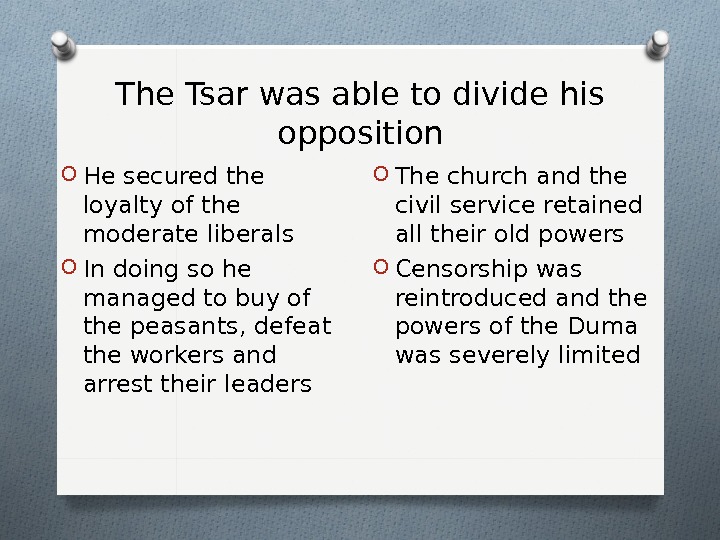
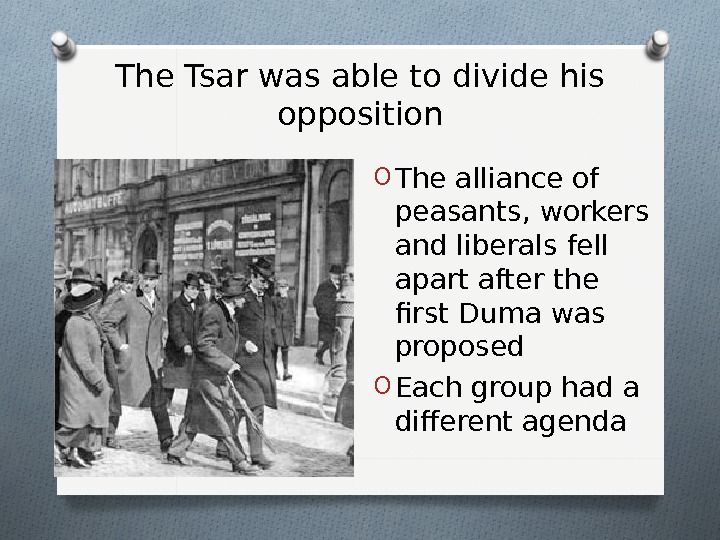
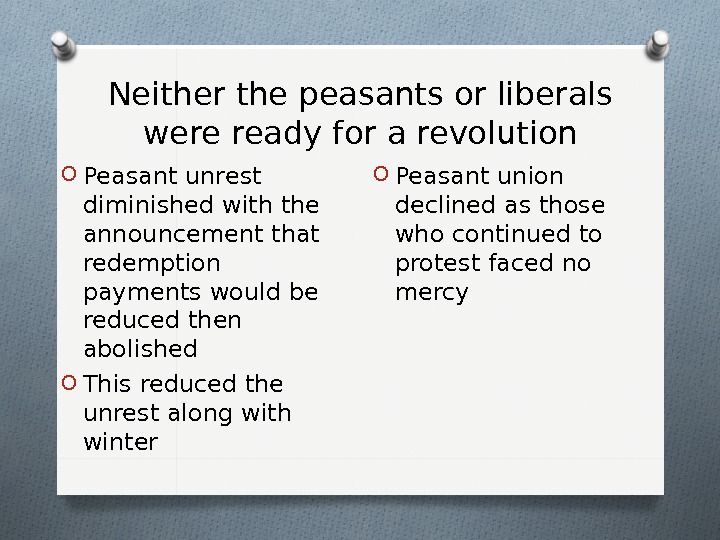
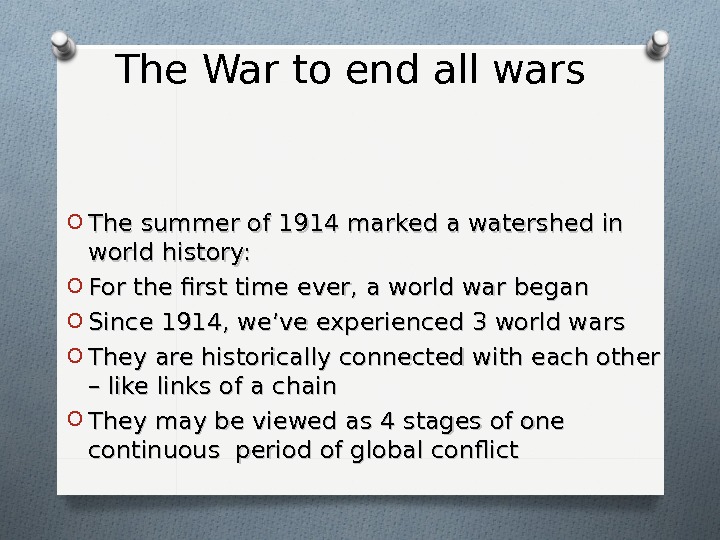
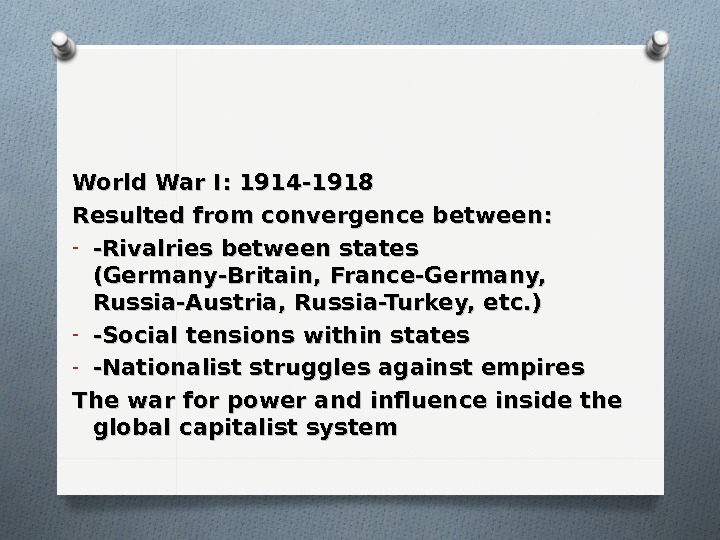
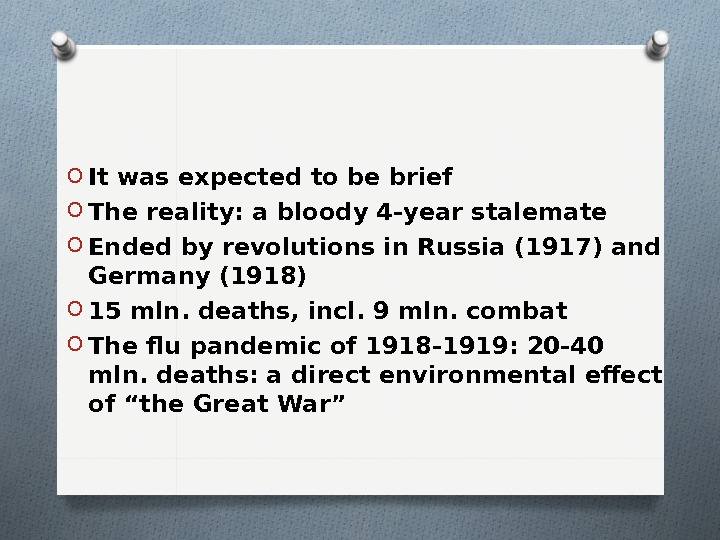
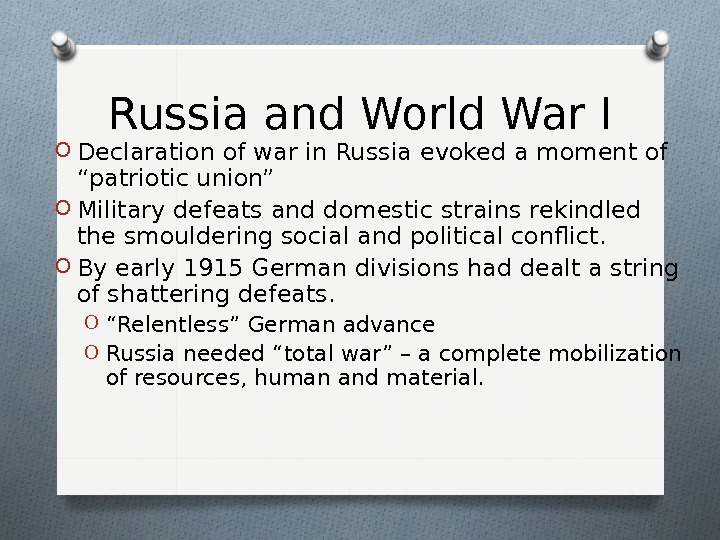
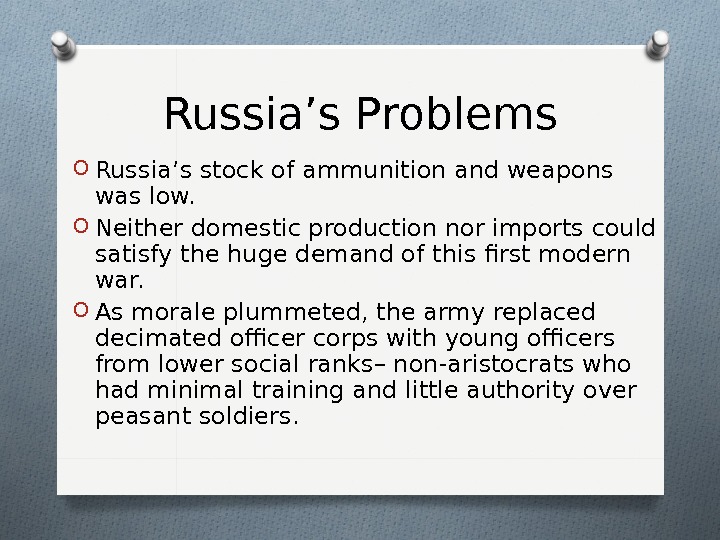
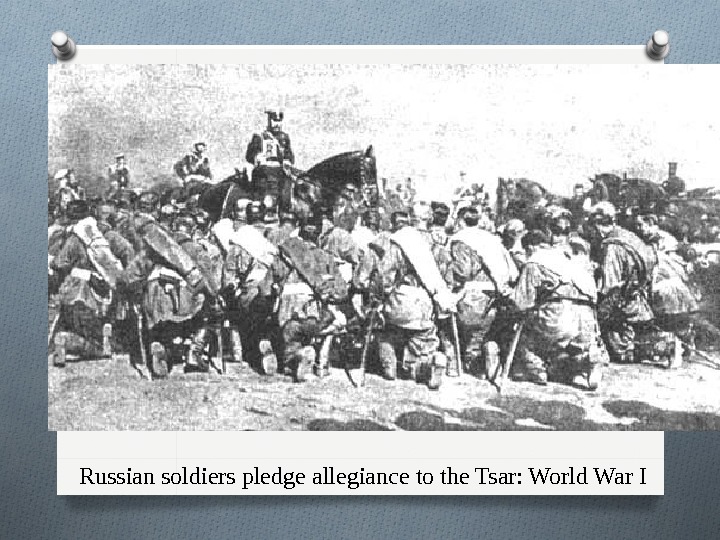
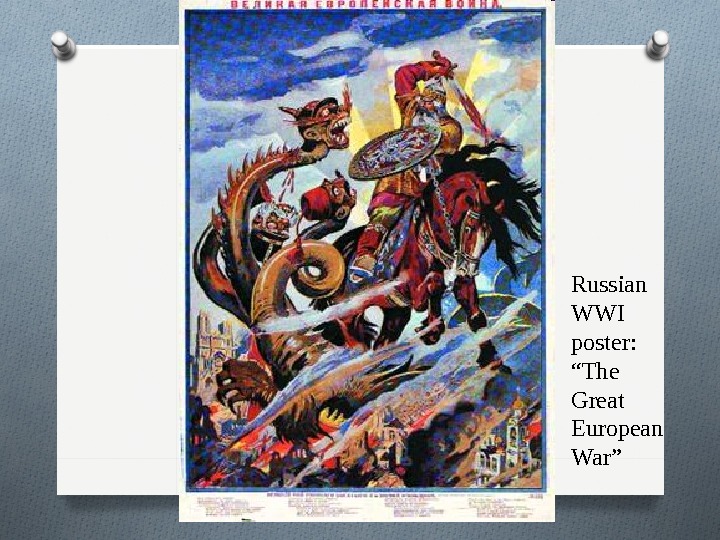
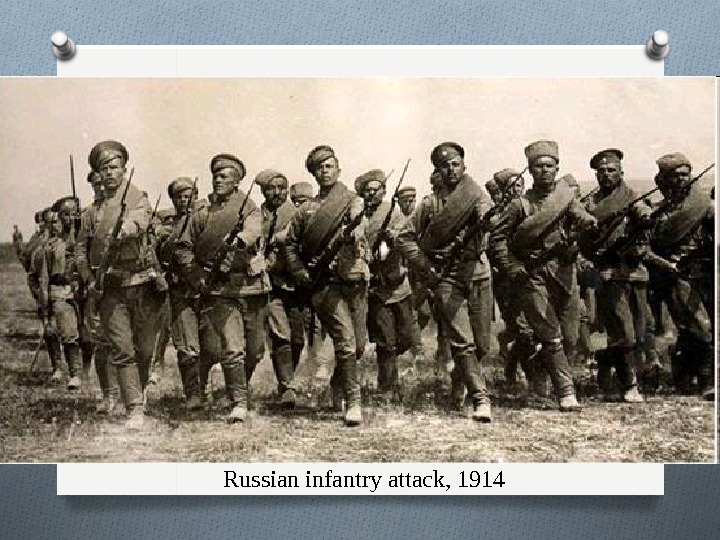
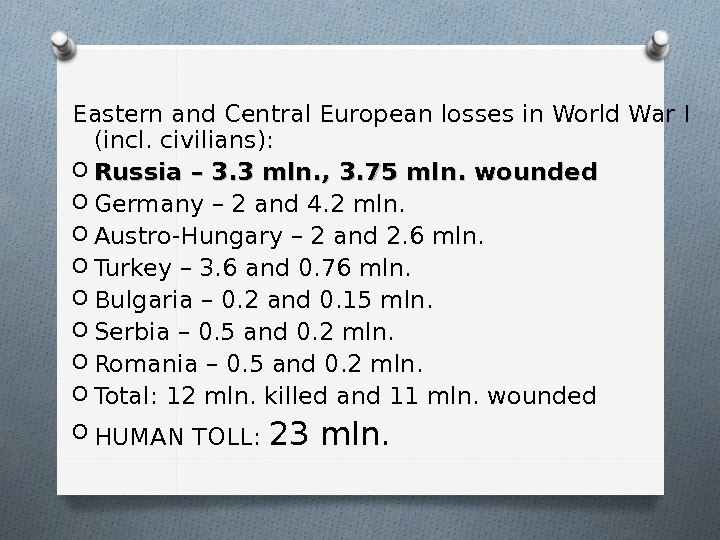
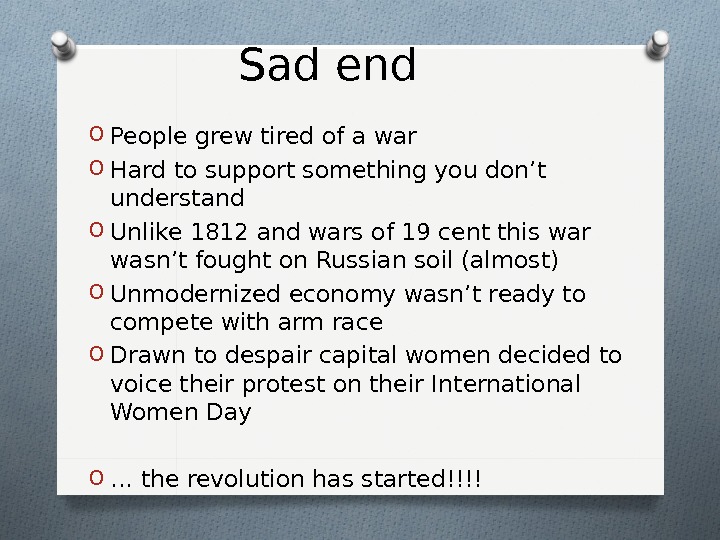
- Размер: 8.2 Mегабайта
- Количество слайдов: 29
Описание презентации Презентация WHY DID REVOLUTION HAPPEN по слайдам
 WHY DID REVOLUTION HAPPEN? ?
WHY DID REVOLUTION HAPPEN? ?
 Russia on the dawn of a century O Development of capitalism transforms Russia O Integration into the global capitalist system O Russia as the weakest link in the global chain Why is it the weakest link? O To enable Russian capitalism to grow and consolidate, the state had to institute effective reforms
Russia on the dawn of a century O Development of capitalism transforms Russia O Integration into the global capitalist system O Russia as the weakest link in the global chain Why is it the weakest link? O To enable Russian capitalism to grow and consolidate, the state had to institute effective reforms
 For the Tzar and Fatherland O Most undeveloped agriculture in Europe O Agrarian sector before and after revolution 1905 was responsible for 50% of national income and employed 66% of population O Rapid development of industry — especially big factories in big cities O Birth of middle class O BUT social system still depend on land rights – nobility
For the Tzar and Fatherland O Most undeveloped agriculture in Europe O Agrarian sector before and after revolution 1905 was responsible for 50% of national income and employed 66% of population O Rapid development of industry — especially big factories in big cities O Birth of middle class O BUT social system still depend on land rights – nobility
 Social forces of change O Industrial working class O Peasants O Radical intellectuals O Nationalists in non-Russian areas of the Empire
Social forces of change O Industrial working class O Peasants O Radical intellectuals O Nationalists in non-Russian areas of the Empire
 1904: How Russia expected to beat Japan
1904: How Russia expected to beat Japan
 Russo-Japanese war of 1904 -05: A Japanese cartoon
Russo-Japanese war of 1904 -05: A Japanese cartoon
 Viva la revolution!! O January 1905 O Defeats of the Russian army and navy in war with Japan trigger off discontent over socioeconomic condition O January 9: The Bloody Sunday O In St. Petersburg, 140, 000 workers, led by a priest, march to the Royal Palace with a petition to the Tsar, asking for reforms O They are met with troops who fire on the crowds
Viva la revolution!! O January 1905 O Defeats of the Russian army and navy in war with Japan trigger off discontent over socioeconomic condition O January 9: The Bloody Sunday O In St. Petersburg, 140, 000 workers, led by a priest, march to the Royal Palace with a petition to the Tsar, asking for reforms O They are met with troops who fire on the crowds
 Troops waiting to stop the demonstration
Troops waiting to stop the demonstration

 St. Petersburg, January 9,
St. Petersburg, January 9,
 The Bloody Sunday: 200 killed, 800 wounded
The Bloody Sunday: 200 killed, 800 wounded
 Classic confrontation between state and society O Repression backfires O Society revolts against the state, demanding: O Resolution of pressing social issues, such as land reform O Political freedoms O Accountable government O Peace
Classic confrontation between state and society O Repression backfires O Society revolts against the state, demanding: O Resolution of pressing social issues, such as land reform O Political freedoms O Accountable government O Peace
 Participants: O Industrial workers O Peasants O Soldiers O Students O Intellectuals O Businessmen O Clergy O Non-Russian nationalities
Participants: O Industrial workers O Peasants O Soldiers O Students O Intellectuals O Businessmen O Clergy O Non-Russian nationalities
 The government’s response O Peace with Japan O Repression O Reforms, beginning with the Tsar’s October 1905 Manifesto, granting political freedoms and parliamentary elections O By 1907, the revolution subsides O But no viable new form of state-society relations has been created O Stalemate O The Tsar is a reactionary, rejects democracy O The nobility is stuck in the old order O The capitalist class is too dependent on the state, too afraid to show initiative
The government’s response O Peace with Japan O Repression O Reforms, beginning with the Tsar’s October 1905 Manifesto, granting political freedoms and parliamentary elections O By 1907, the revolution subsides O But no viable new form of state-society relations has been created O Stalemate O The Tsar is a reactionary, rejects democracy O The nobility is stuck in the old order O The capitalist class is too dependent on the state, too afraid to show initiative
 O The gap between the rulers and the ruled O Reforms stimulate radical protest O THE ATTRACTIONS OF SOCIALISM O When the state resorts to repression, that only makes the state-society gap even wider O Russia’s options: O A liberal-capitalist path: what it would require O An authoritarian-capitalist path: what it would require O A non-capitalist path
O The gap between the rulers and the ruled O Reforms stimulate radical protest O THE ATTRACTIONS OF SOCIALISM O When the state resorts to repression, that only makes the state-society gap even wider O Russia’s options: O A liberal-capitalist path: what it would require O An authoritarian-capitalist path: what it would require O A non-capitalist path
 Why revolution fail? O RUSSIAN ARMY STAYED LOYAL TO TZAR O Mutinies in the armed services did not continue after the war i. e. the mutinies at Kronstadt and the mutiny on the Potemkin O When faced with serious disorder in the towns and in the countryside the army stood behind the Tsar O Loyal troops returned to destroy the soviets
Why revolution fail? O RUSSIAN ARMY STAYED LOYAL TO TZAR O Mutinies in the armed services did not continue after the war i. e. the mutinies at Kronstadt and the mutiny on the Potemkin O When faced with serious disorder in the towns and in the countryside the army stood behind the Tsar O Loyal troops returned to destroy the soviets
 The Tsar was able to divide his opposition O He secured the loyalty of the moderate liberals O In doing so he managed to buy of the peasants, defeat the workers and arrest their leaders O The church and the civil service retained all their old powers O Censorship was reintroduced and the powers of the Duma was severely limited
The Tsar was able to divide his opposition O He secured the loyalty of the moderate liberals O In doing so he managed to buy of the peasants, defeat the workers and arrest their leaders O The church and the civil service retained all their old powers O Censorship was reintroduced and the powers of the Duma was severely limited
 The Tsar was able to divide his opposition O The alliance of peasants, workers and liberals fell apart after the first Duma was proposed O Each group had a different agenda
The Tsar was able to divide his opposition O The alliance of peasants, workers and liberals fell apart after the first Duma was proposed O Each group had a different agenda
 Neither the peasants or liberals were ready for a revolution O Peasant unrest diminished with the announcement that redemption payments would be reduced then abolished O This reduced the unrest along with winter O Peasant union declined as those who continued to protest faced no mercy
Neither the peasants or liberals were ready for a revolution O Peasant unrest diminished with the announcement that redemption payments would be reduced then abolished O This reduced the unrest along with winter O Peasant union declined as those who continued to protest faced no mercy
 The War to end all wars O The summer of 1914 marked a watershed in world history: O For the first time ever, a world war began O Since 1914, we’ve experienced 3 world wars O They are historically connected with each other – like links of a chain O They may be viewed as 4 stages of one continuous period of global conflict
The War to end all wars O The summer of 1914 marked a watershed in world history: O For the first time ever, a world war began O Since 1914, we’ve experienced 3 world wars O They are historically connected with each other – like links of a chain O They may be viewed as 4 stages of one continuous period of global conflict
 World War I: 1914 -1918 Resulted from convergence between: — -Rivalries between states (Germany-Britain, France-Germany, Russia-Austria, Russia-Turkey, etc. ) — -Social tensions within states — -Nationalist struggles against empires The war for power and influence inside the global capitalist system
World War I: 1914 -1918 Resulted from convergence between: — -Rivalries between states (Germany-Britain, France-Germany, Russia-Austria, Russia-Turkey, etc. ) — -Social tensions within states — -Nationalist struggles against empires The war for power and influence inside the global capitalist system
 O It was expected to be brief O The reality: a bloody 4 -year stalemate O Ended by revolutions in Russia (1917) and Germany (1918) O 15 mln. deaths, incl. 9 mln. combat O The flu pandemic of 1918 -1919: 20 -40 mln. deaths: a direct environmental effect of “the Great War”
O It was expected to be brief O The reality: a bloody 4 -year stalemate O Ended by revolutions in Russia (1917) and Germany (1918) O 15 mln. deaths, incl. 9 mln. combat O The flu pandemic of 1918 -1919: 20 -40 mln. deaths: a direct environmental effect of “the Great War”
 Russia and World War I O Declaration of war in Russia evoked a moment of “patriotic union” O Military defeats and domestic strains rekindled the smouldering social and political conflict. O By early 1915 German divisions had dealt a string of shattering defeats. O “ Relentless” German advance O Russia needed “total war” – a complete mobilization of resources, human and material.
Russia and World War I O Declaration of war in Russia evoked a moment of “patriotic union” O Military defeats and domestic strains rekindled the smouldering social and political conflict. O By early 1915 German divisions had dealt a string of shattering defeats. O “ Relentless” German advance O Russia needed “total war” – a complete mobilization of resources, human and material.
 Russia’s Problems O Russia’s stock of ammunition and weapons was low. O Neither domestic production nor imports could satisfy the huge demand of this first modern war. O As morale plummeted, the army replaced decimated officer corps with young officers from lower social ranks– non-aristocrats who had minimal training and little authority over peasant soldiers.
Russia’s Problems O Russia’s stock of ammunition and weapons was low. O Neither domestic production nor imports could satisfy the huge demand of this first modern war. O As morale plummeted, the army replaced decimated officer corps with young officers from lower social ranks– non-aristocrats who had minimal training and little authority over peasant soldiers.
 Russian soldiers pledge allegiance to the Tsar: World War I
Russian soldiers pledge allegiance to the Tsar: World War I
 Russian WWI poster: “The Great European War”
Russian WWI poster: “The Great European War”
 Russian infantry attack,
Russian infantry attack,
 Eastern and Central European losses in World War I (incl. civilians): O Russia – 3. 3 mln. , 3. 75 mln. wounded O Germany – 2 and 4. 2 mln. O Austro-Hungary – 2 and 2. 6 mln. O Turkey – 3. 6 and 0. 76 mln. O Bulgaria – 0. 2 and 0. 15 mln. O Serbia – 0. 5 and 0. 2 mln. O Romania – 0. 5 and 0. 2 mln. O Total: 12 mln. killed and 11 mln. wounded O HUMAN TOLL: 23 mln.
Eastern and Central European losses in World War I (incl. civilians): O Russia – 3. 3 mln. , 3. 75 mln. wounded O Germany – 2 and 4. 2 mln. O Austro-Hungary – 2 and 2. 6 mln. O Turkey – 3. 6 and 0. 76 mln. O Bulgaria – 0. 2 and 0. 15 mln. O Serbia – 0. 5 and 0. 2 mln. O Romania – 0. 5 and 0. 2 mln. O Total: 12 mln. killed and 11 mln. wounded O HUMAN TOLL: 23 mln.
 Sad end O People grew tired of a war O Hard to support something you don’t understand O Unlike 1812 and wars of 19 cent this war wasn’t fought on Russian soil (almost) O Unmodernized economy wasn’t ready to compete with arm race O Drawn to despair capital women decided to voice their protest on their International Women Day O … the revolution has started!!!!
Sad end O People grew tired of a war O Hard to support something you don’t understand O Unlike 1812 and wars of 19 cent this war wasn’t fought on Russian soil (almost) O Unmodernized economy wasn’t ready to compete with arm race O Drawn to despair capital women decided to voice their protest on their International Women Day O … the revolution has started!!!!
